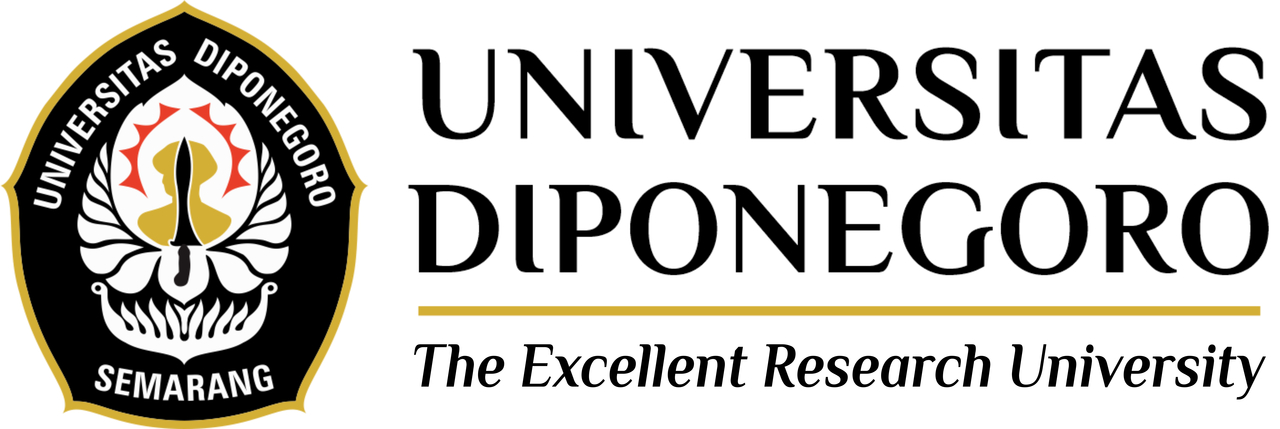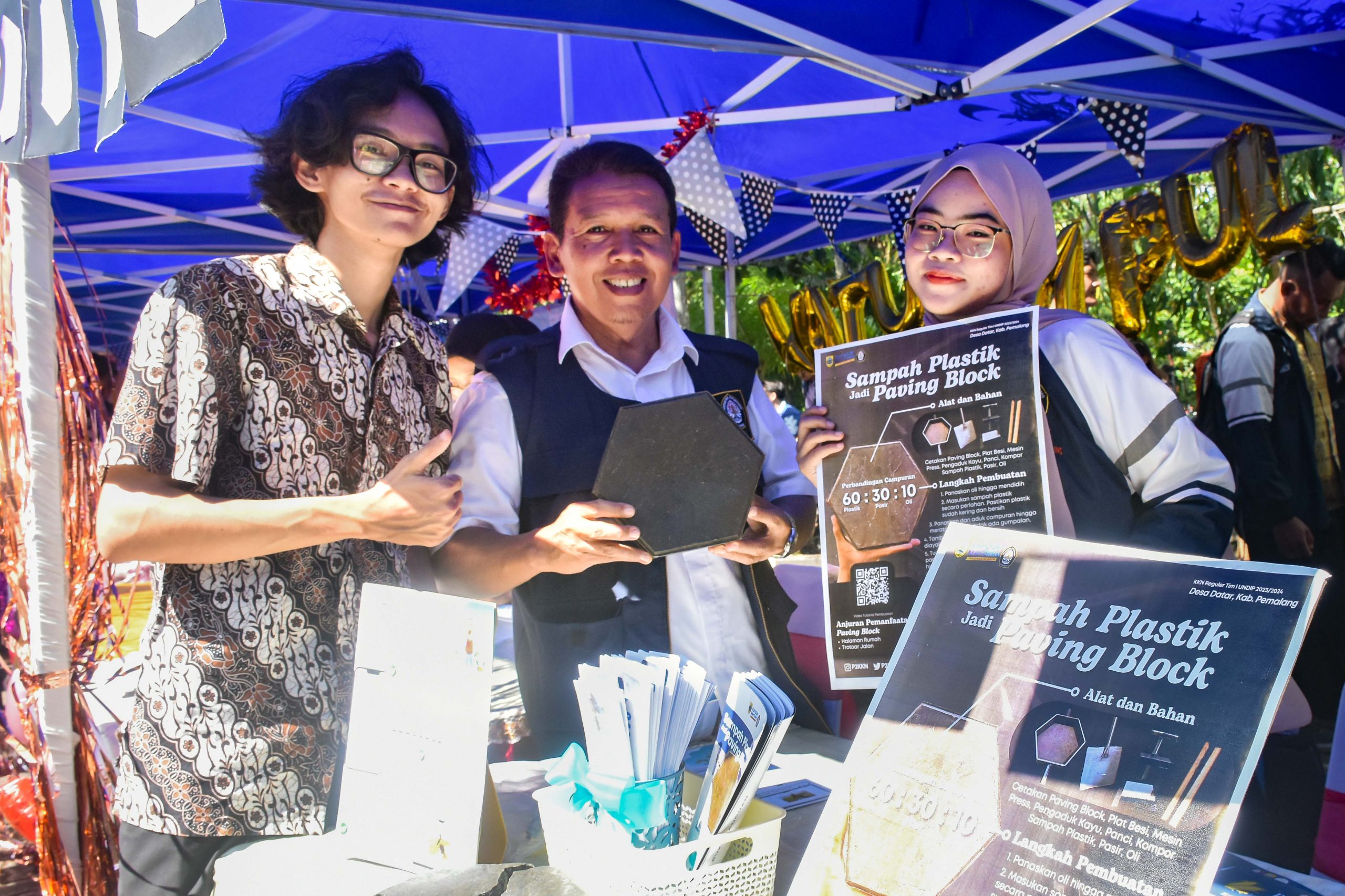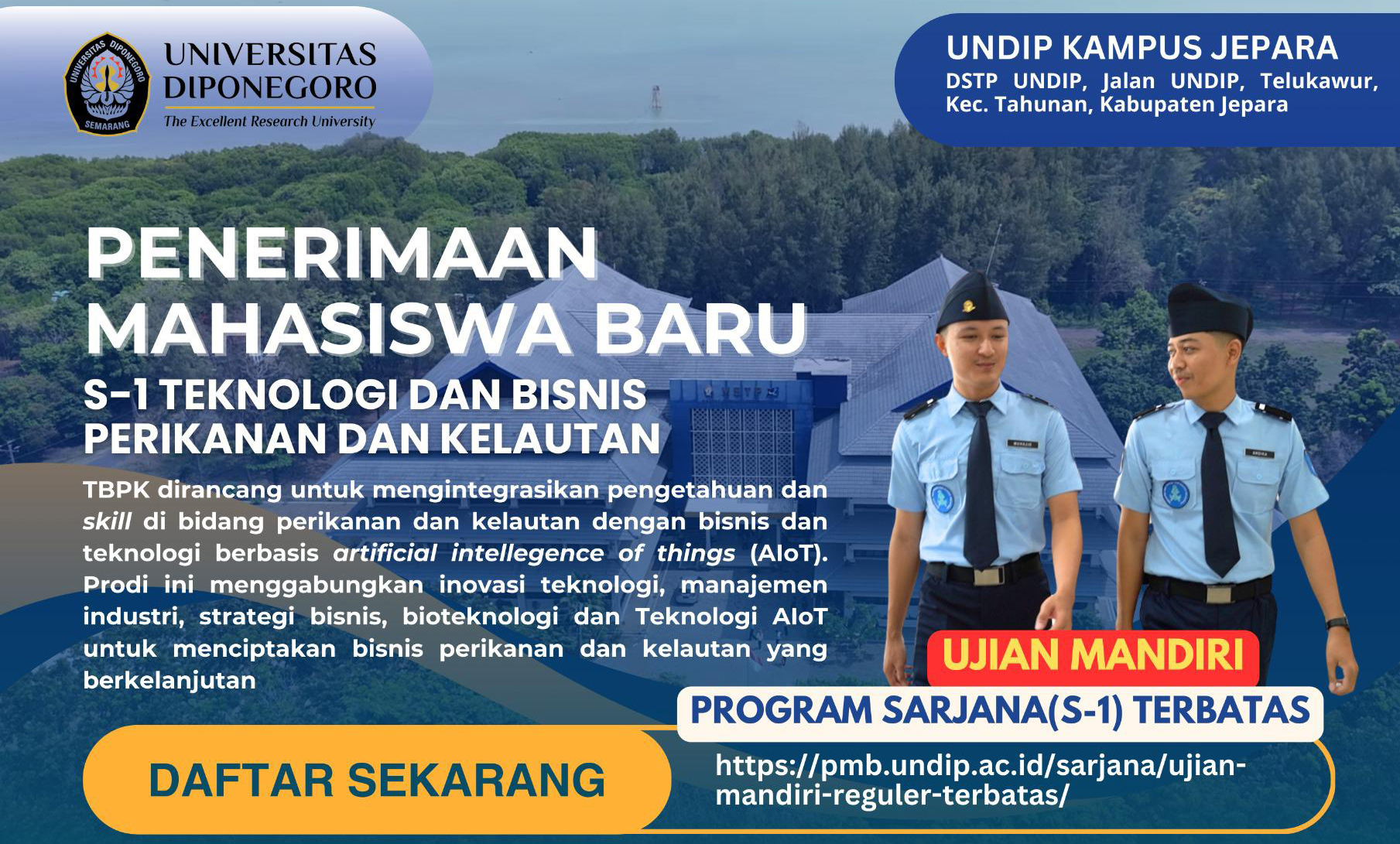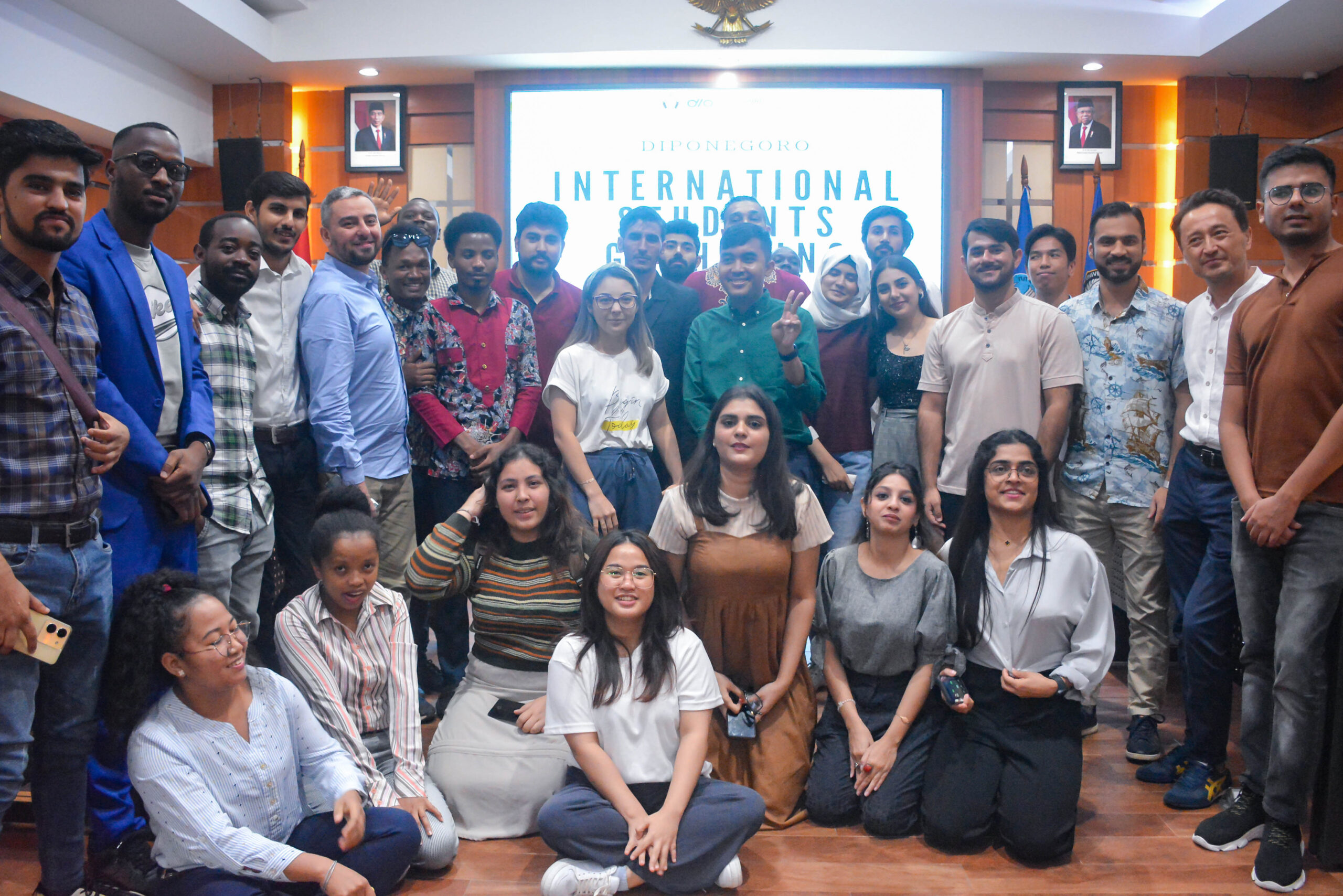The plastic waste issue has been under the global spotlight in an effort for environmental conservation. Plastic waste production in Indonesia has reached 5,4 million tons per year, and it is known that plastic waste needs hundreds to thousands of years to decompose back to earth. Furthermore, waste management in the Pemalang Regency is becoming more concerning.
“In fact, waste management in the Pemalang Regency, the landfill, no longer accepts waste from several Regencies. Residents of Warungpring Village only have the initiative to burn waste, which will add more air pollution,” stated Akmal, a Team I KKN Undip student deployed in Datar Village, Pemalang Regency.
It leads to a dire need for utilization to handle plastic waste. For instance, making a handicraft, which has been done massively, yet it still needs to be more effective, is necessary. Thus, a plastic waste management innovation that becomes something long-lasting is essential. To solve this problem, Akmal Hafidh, a student of the Faculty of Engineering Undip, and his team found a way of waste management by turning plastic waste into an eco-brick paving block.
An eco-brick paving block became one of the latest products from Community Service (KKN) students in Data Village, Warungpring District, and Pemalang Regency at the Gelar Karya event. The Gelar Karya event was the peak of Diponegoro University’s Community Service (KKN) Team I Academic Year 2023/2024, held on February 19th, 2024.
Plastic waste can be utilized as the main component of paving blocks. A paving block, also known as paving stone or brick paver, is a construction element to build roads, sidewalks, parks, or other areas used for flooring or ground covers.
The quality of the plastic waste paving block is not inferior to that of the ordinary paving block. The eco-brick paving blocks have a compressive strength of 49,45 MPa, flexural strength of 2,82 MPa, and durability of 2-3 years. Hence, the eco-brick paving block is qualified for A-quality use for roads under SNI 03-0691 (1996). The eco-brick paving block is also competitive, ranging from Rp 3.500 to Rp 5.000 per unit, beating the price of an ordinary paving block, usually priced at Rp 3.000 per unit.
The essential components of the paving block include plastic waste, sand, and oil in a 60: 30: 10 mixture ratio. The plastic waste used is cleaned to prevent foreign materials from getting into the mixture. “The process of making paving blocks started by waste sorting. Next, oil was boiled, then plastic was added, and lastly, sand was added,” said Akmal.
Akmal also revealed the benefit of eco-brick paving, which can reduce waste accumulation and the potential for disease that can arise as a result. Thus, this innovation positively contributes to plastic waste management to maintain the environmental sustainability. (GR & DHW/Public Relations)






